Earth
Sign up for our newsletter
We summarize the week's scientific breakthroughs every Thursday.
-
 Animals
AnimalsFake fog, ‘re-skinning’ and ‘sea-weeding’ could help coral reefs survive
Coral reefs are in global peril, but scientists around the world are working hard to find ways to help them survive the Anthropocene.
-
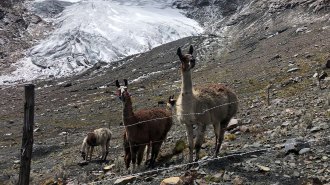 Animals
AnimalsAt the foot of a melting glacier in Peru, llamas helped revitalize the land
A partnership between scientists and farmers suggests how llama herding can mitigate some of the impacts of climate change.
-
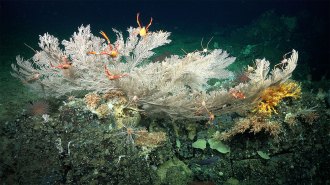 Life
LifeSee the wonders of two newfound deep-sea coral reefs off the Galápagos
Coral reefs around the world are in trouble. But these reefs in the Galápagos Island Marine Reserve have yet to be damaged by humans.
-
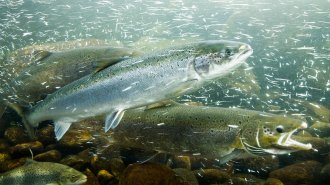 Animals
AnimalsPumping cold water into rivers could act as ‘air conditioning’ for fish
Hundreds of salmon, trout and other fish sought shelter from summer heat in human-made shelters, suggesting a way to help fish adapt to river warming.
By Nikk Ogasa -
 Plants
PlantsBerkley Walker wants to revamp photosynthesis for a changing climate
Finding ways to make plants work better could help feed a growing population, especially as the planet warms.
By Aaron Brooks -
 Climate
Climate50 years ago, scientists warned of the ‘neglected dangers’ of heat islands
In 1973, scientists knew temperatures in cities were higher than in rural areas. Now, some cities are attempting to cool down with engineering.
-
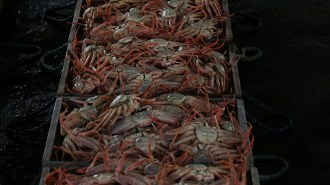 Life
Life10 billion snow crabs have disappeared off the Alaskan coast. Here’s why
In the eastern Bering Sea, the snow crab population plummeted after a marine heat wave in 2018. The crabs may have starved, a new study finds.
By Jude Coleman -
 Climate
ClimateRóisín Commane sleuths out greenhouse gas leaks to fight climate change
From New York City to the Arctic, atmospheric chemist Róisín Commane tries to account for the greenhouse gases in the air.
By Jennifer Lu -
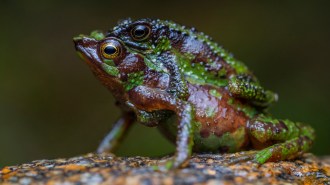 Animals
AnimalsA global report finds amphibians are still in peril. But it’s not all bad news
A survey of about 8,000 amphibian species provides the latest update on extinction risk trends stretching back to 1980.
By Anna Gibbs -
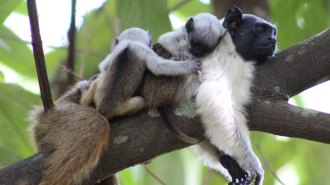 Animals
AnimalsIn noisy environs, pied tamarins are using smell more often to communicate
Groups of the primate, native to Brazil, complement vocalizations with scent-marking behavior to alert other tamarins to dangers in their urban home.
-
 Paleontology
PaleontologyNew computer analysis hints volcanism killed the dinosaurs, not an asteroid
Scientists take a creative approach to investigating what caused the mass extinction 66 million years ago, but the debate is far from settled.
-
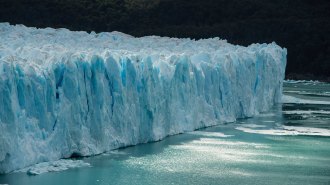 Climate
Climate‘Our Fragile Moment’ finds modern lessons in Earth’s history of climate
Michael Mann’s latest book, Our Fragile Moment, looks through Earth’s history to understand the current climate crisis.